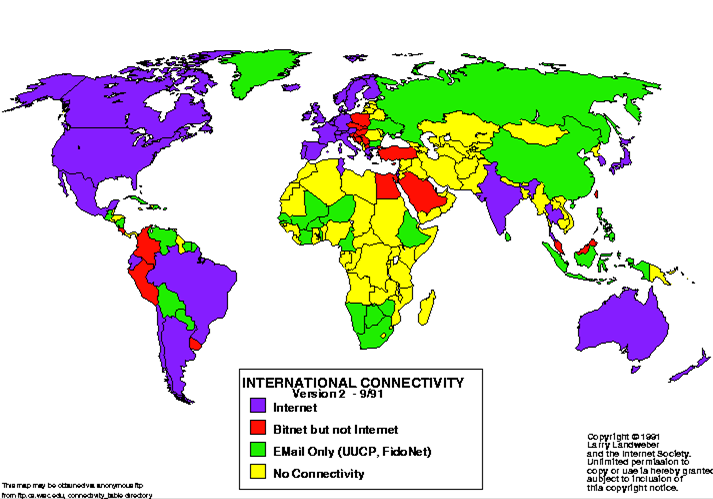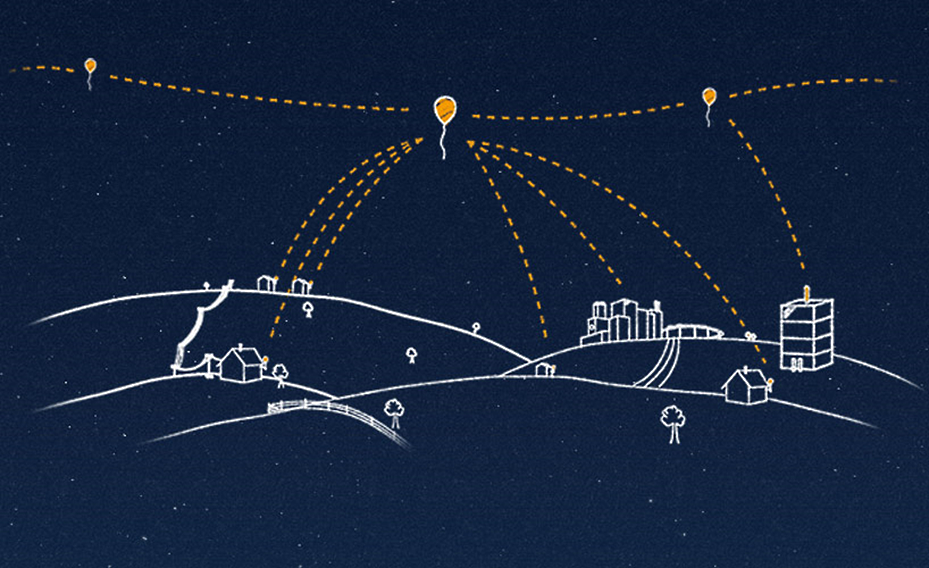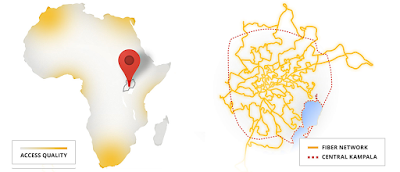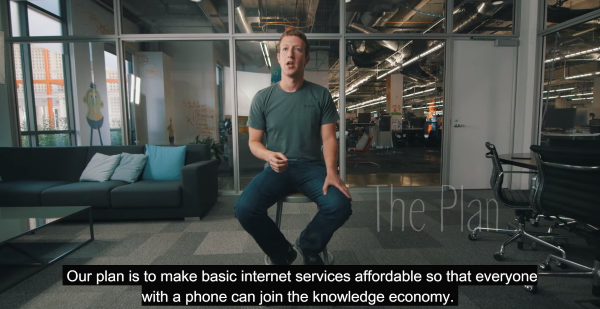aNewDomain — Today, every nation is connected to the Internet, but in many ways the digital divide is still as deep as it was 25 years ago. I have been working on and studying the Internet in developing countries since 1991, a time when only a few countries had an Internet connection, as seen in Larry Landweber’s connectivity map:

At Mobile World Congress in Barcelona earlier this month, Google and Facebook both described their efforts to bring Internet connectivity to the nearly four billion people who do not currently have access.
Project Loon and Project Link
Project Loon is designed to deploy a constellation of balloons above the weather, mountains and air traffic at an altitude of about 20 kilometers, according to Sundar Pichai, senior vice president of Android, Chrome and Apps at Google Inc.
We are well on our way to a platform that, by the end of the decade, will touch 4 to 5 billion people.”

These balloons will serve as airborne routers and will be able to communicate with each other, with end users and with back-haul locations. The balloons keep nearby smartphones operating at 4G or LTE speeds — around 10 megabits per second — and currently average at least six months in the air.
 Google is also working on Project Link in Kampala, Uganda. It has created an urban backbone, with more than 800 kilometers of fiber installed in Kampala. According to Pichai, Google will be expanding Project Link by installing fiber backbones in “many more” cities in Africa this year.
Google is also working on Project Link in Kampala, Uganda. It has created an urban backbone, with more than 800 kilometers of fiber installed in Kampala. According to Pichai, Google will be expanding Project Link by installing fiber backbones in “many more” cities in Africa this year.
As is often the case with municipal networks — Stockholm for example — Google is not a retail Internet service provider but instead provides wholesale connectivity to retailers. For more detail and analysis on the success of the Kampala deployment, see this post by Steve Song.
Internet.org
While Google is working on long-term projects — including investing in Elon Musk’s SpaceX project to use low earth orbit satellites to provide Internet service — Facebook’s Internet.org is already operating in Ghana, Columbia, Tanzania, Kenya, Indonesia and India.
Facebook CEO Mark Zuckerberg hopes to make basic Internet services affordable through Internet.org, enabling anyone with a phone to join the knowledge economy.

Facebook and its partners are focused on improvements to traditional terrestrial cellular phone technology made by mass-producing cheap and powerful cell phones, improving mobile infrastructure and caching and compressing data. Its partners also reflect this orientation — phone manufacturers, Mediatek (a fabless semiconductor company) and Opera (a Web software company).
It’s important to note that Facebook and its partners are only looking to provide “basic Internet services,” and are not looking to offer access to the open Internet. In India, for example, access is limited to Facebook and 37 other websites. To learn more about some of Facebook’s more exotic, long-range ideas, check out its Connectivity Lab.
Learn more about the technology behind Google’s Project Loon:
Video: Project Loon: The Technology
Learn more about Facebook’s work on Internet.org:
Video: Making the Internet Affordable
For aNewDomain, I’m Larry Press.
Images courtesy of Larry Landweber, Project Loon and Internet.org.
Featured Image: By Rona Proudfoot via Flickr Creative Commons.













